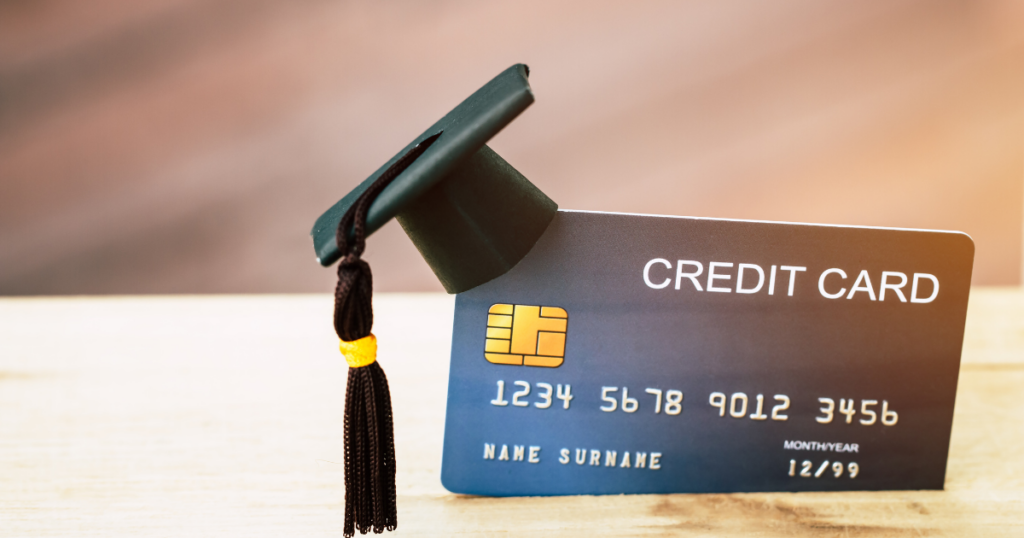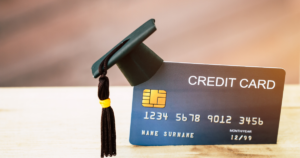If you’re feeling stretched thin trying to pay down credit card debt while staying current on student loans, you’re not alone. The key to managing both is finding practical ways to free up cash, whether by cutting unnecessary expenses, boosting your income, or lowering your interest rates. With the right strategies, it’s possible to generate extra money each month, prioritize your financial obligations, and make steady progress toward becoming debt-free.
Did you know that in 2025, the average American carries about $6,6181 in credit card debt, according to Experian, while student loan debt has reached an all-time high, with the average borrower owing over $38,3752 ? Balancing student loan payments with credit card debt can feel overwhelming, but with some planning, it’s possible to manage both effectively.
Key Takeaways
Managing student loans and credit card debt requires a clear, strategic plan.
A detailed budget and targeted spending cuts can free up cash for credit debt repayment.
Boosting your income through side gigs or selling unused items helps you pay down debt faster.
Negotiating lower interest rates and refinancing options can ease your monthly burden.
Nonprofit credit counseling agencies like American Consumer Credit Counseling(ACCC) offer structured, personalized solutions without risking your credit health.
Managing Student Loan and Credit Card Debt
How can I create a budget that actually helps me manage both student loans and credit card debt?
Creating a budget isn’t just about tracking spending. It’s about making your money work for your priorities. Start by listing all sources of income and fixed expenses like rent, utilities, minimum payments for credit cards and student loans. Then, categorize your variable expenses into essentials (e.g., groceries, gas) and non-essentials (e.g., dining out, entertainment).
You can start by using ACCC’s resourceful budgeting tools to organize your money. A detailed picture of your finances can help you allocate specific dollar amounts to credit debt repayment goals and adjust non-essential spending to increase how much you can apply to your balances. If your budget doesn’t balance, that’s your signal to cut costs or seek extra income.
Where can I realistically cut expenses to free up more cash?
You may be surprised how much can be freed up by making small, consistent changes:
- Cancel streaming services or unused subscriptions
- Switch to a lower-cost phone or insurance plan
- Prepare meals at home more often
- Delay non-urgent purchases (e.g., clothing, tech upgrades)
- Use loyalty programs, coupons, and cash-back apps to lower grocery bills
Every $25–$50 saved monthly can be redirected toward your debt, and over time, that adds up.
What are realistic ways to earn extra income while working full-time?
Even with a full-time job, many people successfully add to their income by taking on a side hustle to supplement your income.
- Freelancing: Use skills like writing, design, admin, or tutoring on Upwork or Fiverr
- Rideshare/delivery: Uber, DoorDash, Instacart offer flexible scheduling
- Online selling: Declutter and sell items on Facebook Marketplace or eBay
- Task apps: TaskRabbit or Handy for simple jobs like assembling furniture or yardwork
- Remote gigs: Part-time customer service or data entry from home
Aim to find a side hustle that aligns with your time and energy, not just income potential.
Can I work from home to increase income without spending more on gas and commuting?
Yes! The remote job market is booming. Sites like FlexJobs, Remote.co, and We Work Remotely feature flexible roles in fields like customer service, virtual assistance, tutoring, marketing, and IT support. Even part-time remote work can add hundreds per month without added commute costs.
Don’t underestimate the power of your network. Let friends and family know you’re looking for extra work or opportunities to earn money. They might have leads or know someone who needs your skills. Networking can lead to referrals and new income streams without the need for extensive job hunting.
Should I refinance or consolidate my student loans or credit card debt?
Refinancing student loans may be a good option if you have strong credit and can qualify for a lower interest rate. This can reduce your monthly payment and total interest paid. But be cautious: federal loans lose protections (like forbearance and forgiveness options) when refinanced with private lenders.
Debt consolidation loans for credit cards can simplify payments, but they often require good credit and create a new loan obligation. If not managed carefully, you could end up with new credit card balances and a consolidation loan — worsening your debt situation.
How can I lower my credit card interest rates to pay less over time?
Call your credit card company and ask for a lower APR, especially if you’ve made on-time payments. A simple call could reduce your interest by several points, making your payments go further toward your balance. You can also:
- Explore a Debt Management Plan (DMP) through a nonprofit like ACCC, which can secure significantly reduced rates across all enrolled accounts
- Consider a balance transfer card with 0% APR for 12–18 months (if you qualify)
- Use windfalls like tax refunds or bonuses to pay down high-interest cards
- Automating your savings can help you build a financial cushion without thinking about it. Set up automatic transfers from your checking account to a savings or investment account. Even small amounts add up over time and can be used to pay down debt or cover unexpected expenses.
- Negotiate Lower Interest Rates – Reach out to your credit card issuer to negotiate a lower interest rate. A reduced rate can save you money on interest charges and help you pay off debt faster. Additionally, look for student loan refinancing options to secure a lower interest rate and potentially reduce your monthly payments.
Is It Better to Pay Off Credit Cards or Student Loans First?
It depends on your situation. Financial experts typically suggest:
- Prioritize credit card debt first due to higher interest rates.
- Continue making minimum payments on student loans while tackling high-interest credit cards.
- If student loans are federal, take advantage of income-driven repayment plans or deferment options if needed.
Once credit card balances are under control, shift your focus to paying down student loans more aggressively.
Seek Professional Help
Consider reaching out to an accredited nonprofit credit counseling organization like American Consumer Credit Counseling. (ACCC) for guidance and support. ACCC offers personalized credit counseling services that can help you create a tailored debt management plan. Their certified credit counselors will work with you to understand your financial situation and provide strategies to manage your student loans and credit card debt effectively. By seeking professional help, you can gain clarity, reduce financial stress, and work towards a more secure financial future. Less credit card debt means more money to pay off your student loans faster. Remember, taking proactive steps today can lead to a debt-free tomorrow, and ACCC is here to support you every step of the way.
If you’re struggling to pay off debt, ACCC can help. Schedule a free credit counseling session with us today.
-
Horymski, Chris. “Americans’ Average Monthly Debt Payment Increases to $1,237,” Jun 11, 2025, https://www.experian.com/blogs/ask-experian/research/average-monthly-loan-payment/
-
Hanson, Melanie. “Student Loan Debt Statistics” EducationData.org, March 16, 2025, https://educationdata.org/student-loan-debt-statistics






